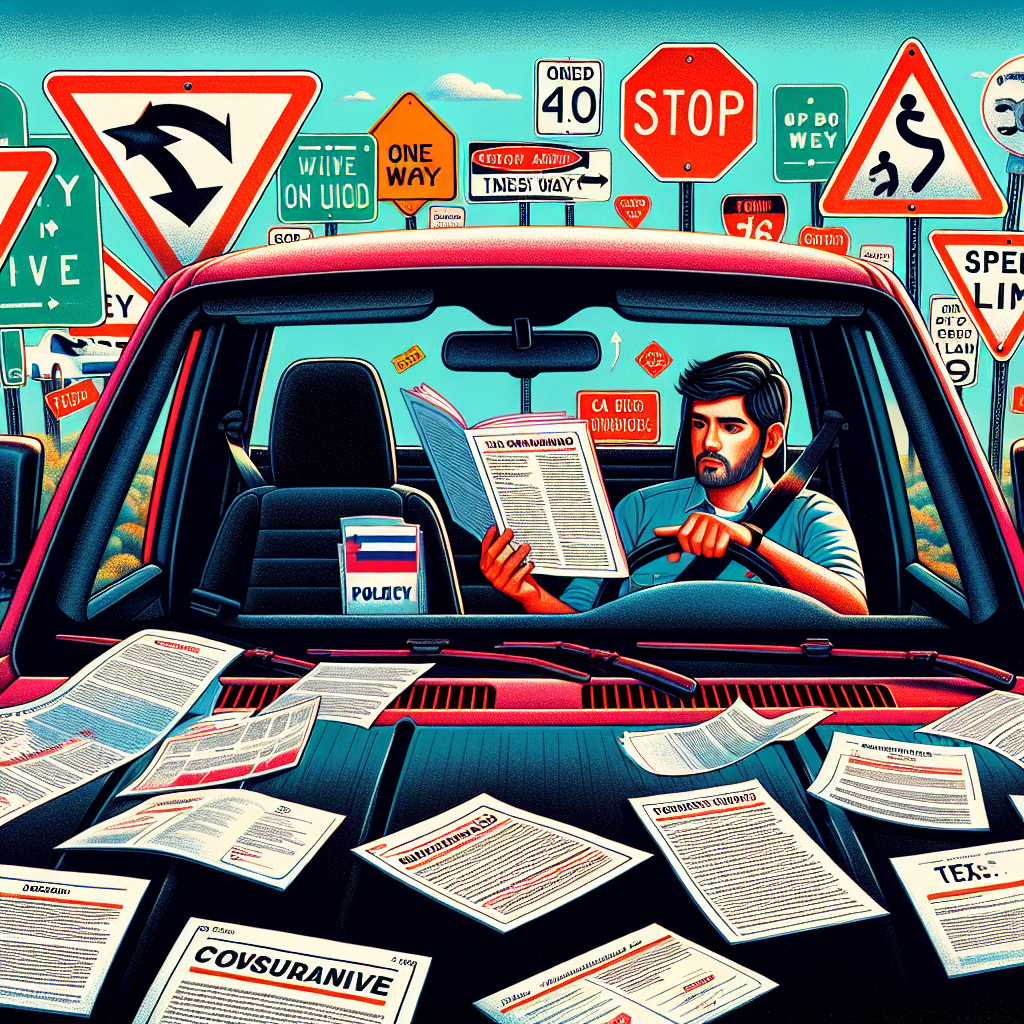
Before hitting the highways of Texas, securing more than just a set of wheels is a must—you have to be backed by valid insurance coverage to keep your driving legal. Navigating the intricacies of Texas car insurance regulations is crucial to dodge hefty penalties tied to driving uninsured or underinsured. Should you find yourself on the wrong side of these laws, anticipate not only fines but also a spike in your insurance rates. The insurance experts at Bankrate have unpacked everything vital about Texas auto insurance statutes so you can confidently meet the state’s minimum requirements and drive well-protected across the Lone Star State.
Unpacking Texas Car Insurance Rules
Texas law mandates that drivers carry liability insurance and always have proof handy, ready to present to law enforcement upon request.
The core demands of Texan car insurance laws include:
- Maintaining at least the state-mandated minimum liability coverage and possessing documentation as evidence when a police officer asks.
- Adding eligible teenage motorists living in your household to your insurance policy; failure to do so may result in premium repayments, denied claims, or policy cancellations.
- Reporting any accident you’re involved in to law enforcement, which carries serious repercussions such as fines or imprisonment if neglected.
- Strictly prohibiting fraudulent claims under any circumstances.
For those leasing or financing a vehicle, lenders typically require insurance that complies with state standards. Texas’s mandatory liability insurance means you’re financially accountable for damages or medical expenses attributed to your fault in a collision.
Snapshot of Minimum Liability Coverage
The state requires coverage set at 30/60/25, explained as follows:
- Bodily Injury Liability: Up to $30,000 per person and $60,000 per incident
- Property Damage Liability: Up to $25,000 per accident
This baseline insurance satisfies legal obligations but is just the foundation—insurers must also offer uninsured/underinsured motorist protection and personal injury protection (PIP), although you can opt out of these in writing if you so choose.
Why Liability Insurance Alone Might Not Cut It
Relying solely on liability coverage means no financial aid for repairing your own vehicle, covering your medical bills, or renting a replacement car during repairs. Often, minimum liability caps don’t cover the full scope of damages from a responsible party’s collision, so opting for additional insurance layers can shield you from significant out-of-pocket expenses.
Consequences of Driving Without Insurance in Texas
Keeping your car insurance policy current in Texas isn’t just advisable—it’s legally imperative. Failing to maintain valid coverage risks penalties such as mandatory SR-22 filings for high-risk drivers and vehicle impoundment. Those labeled high-risk face elevated premiums and limited insurer options.
Should you crash uninsured and cause property damage or bodily harm, you might personally cover repair costs, hospital bills, lost income, and rental fees—and could be dragged into costly lawsuits potentially amounting to thousands. Although Texas law mandates uninsured motorist coverage availability, drivers may decline this protection in writing.
Additional Coverage Choices Available in Texas
Beyond the obligatory minimum, Texas drivers can explore supplementary insurance options to enhance protection:
- Comprehensive Coverage – Shields your vehicle against non-collision hazards like theft, vandalism, encounters with wildlife, or severe weather.
- Personal Injury Protection (PIP) – Covers medical expenses incurred while driving, riding in others’ cars, walking, or biking.
- Uninsured/Underinsured Motorist Coverage – Offers protection if an accident involves a driver without sufficient insurance or a hit-and-run; note that this coverage comes with a $250 deductible and can be declined in writing.
Quick Facts on Texas Car Insurance Costs
As of April 2024, the average annual car insurance premium in Texas clocks in at approximately $2,637, based on data from Quadrant Information Services. Premiums fluctuate depending on driver profile, vehicle type, and coverage levels, making it essential to shop around and compare quotes to secure the best deal tailored to your needs.
Addressing Common Questions About Texas Car Insurance
Which Insurer Tops the List in Texas?
Pinpointing the best insurer involves weighing factors like available discounts, bespoke coverage options, and customer service rankings. Trusted evaluators such as J.D. Power and AM Best can provide insightful ratings to guide your choice.
Where to Find the Most Affordable Texas Car Insurance?
Exploring every discount and policy tweak is key to trimming your premium costs. Shopping around for multiple quotes is the smartest route to uncover the lowest rates.
What Is the Typical Price Tag for Car Insurance in Texas?
Insurance expenses vary widely based on individual circumstances but expect an average of around $2,637 per year as a general benchmark. Comparing prices from various insurers is your best bet for snagging a competitive plan.
Does Texas Operate Under a No-Fault Insurance System?
Texas sticks to a traditional tort liability framework rather than a no-fault system. Here, the driver found responsible for an accident bears financial responsibility for medical bills and property damage. This setup permits victims to seek compensation directly from the at-fault party’s insurer for expenses such as lost wages and medical care.